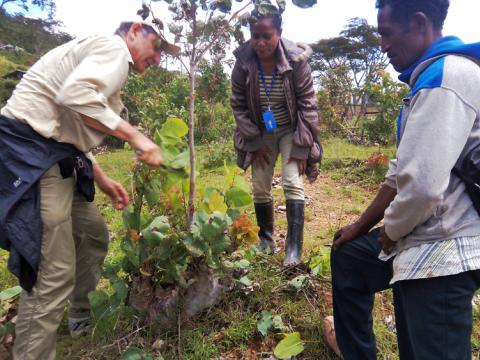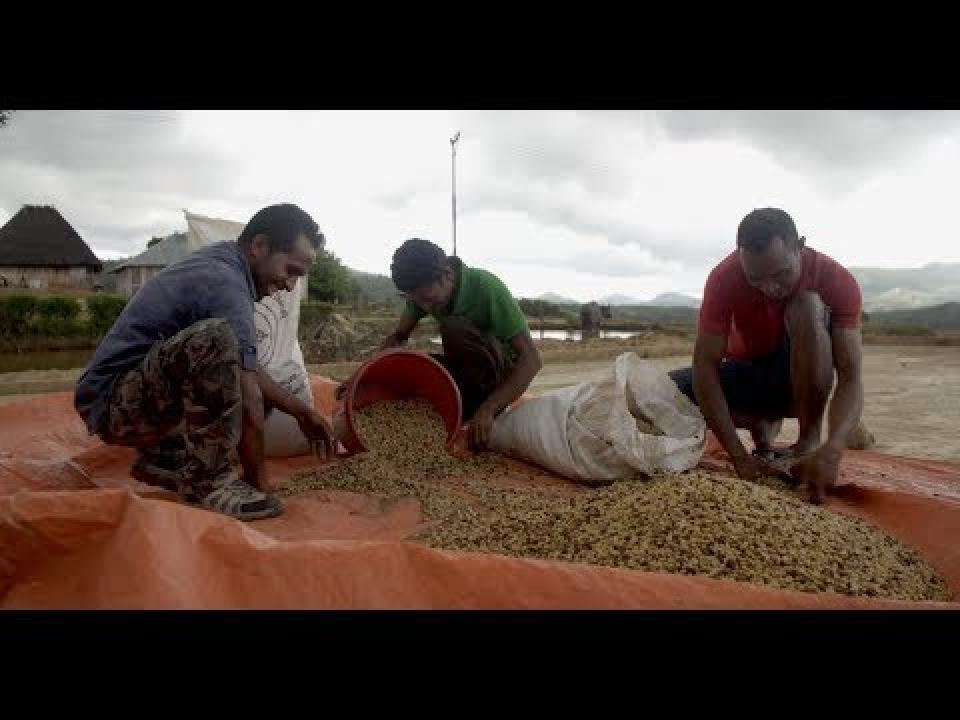
Why COVID-19 is a chance for us to 'regreen our mindscapes'
By Tony Rinaudo, Principal Natural Resources Advisor, World Vision Australia
Too often, our hyper-busy lifestyles stop us thinking about where we are heading. If there is any benefit to come out of self-isolation, it could be the opportunity to reflect on where we’ve come from, where we want to get to, and how we get there.
In my time with World Vision I’ve worked with communities suffering from the impacts of deforestation, land degradation and climate change in 26 countries. As part of that work, I often conduct workshops where one of the very first activities is what I call Past, Present, Future. I ask people to describe what life was like when they were children, what it’s like now, and what life will be like for their children if no corrective actions are taken.
The results are amazingly uniform. Generally, people describe how rainfall was more predictable and reliable, fields yielded enough to eat, streams flowed all year, there was more diversity, greater numbers of plants and wild animals. Today, they mostly relate sad stories of scarcity, adverse climate and grinding poverty. I ask, if we don’t change any behaviours, what of the future? The answers are startling: “It will be hell on earth; we will have to leave everything we know and love and migrate to the capital city; and most shocking, we will become cannibals!”
This exercise has become one of my most powerful tools to stimulate reflection that can lead to positive behaviour change. People became indignant – “no, we do not want that bleak future for ourselves or our children” and begin to ask “but what can we do differently?”
So, what about us? After the COVID crisis is over, if we continue business as usual, where are we headed and what will be the impact on ourselves and our children if our behaviour towards the planet and each other remains the same? Fortunately, we know the answers. We know very well where we are heading. The recent cataclysmic bushfires, the once-again unprecedented coral reef die-off, disappearance of kelp forests, unprecedented drought and storm events, the looming extinction of over one million unique species and the emergence of new diseases are harbingers of things to come – if we do not change behaviour.
One new infectious disease emerges in humans every four months. Of these, 75 per cent come from animals, according to UN Environment. Climate change, man-made changes to nature and changes that disrupt biodiversity, such as deforestation, land-use change, intensive agriculture and livestock production or the growing illegal wildlife trade, can increase contact and transmission of diseases from animals to humans, like COVID-19.
We have received ample warnings. These warnings are not the ravings of alarmists. They are no longer disputable. These warnings are the canaries in the coal mine, and those canaries are close to taking their last breath. We should be shaken into decisive, corrective action before it is too late.
Sadly, while the developed world appears to be able to adapt, the most vulnerable and marginalised in the world are totally unprepared for what is to come. From the COVID-19 crisis alone, World Vision estimates the secondary effects of the crisis are putting the lives of at least 30 million children at risk, millions of whom are displaced, living in urban poverty, conflict, or overcrowded areas, with limited access to healthcare. Our worst nightmare is the virus taking hold in these conditions.
World Vision is already responding globally, focusing on 17 countries, aiming to reach 22.5 million people (including 11 million children) in an $80 million response. But while it is actively addressing the immediate issues, it is also a global leader in addressing root causes, including reversing deforestation and land degradation, and through that, climate change. It does this through engaging communities to restore and maintain their forests and land and to use sustainable farming approaches. When we get through the COVID-19 crisis, we will need to redouble our efforts to avert the predicted ravages of climate change.
Much of what I do in my workshops is about turning enemies into friends - enemies of trees and nature into friends of nature. I teach that by working with nature instead of trashing it, nature will in turn meet our needs and we will have a better future for ourselves and our children. I call this ‘regreening mindscapes’ in order to regreen landscapes.
At this point in history, when we’ve been forced to stop, and hopefully reflect on the things which matter, what’s to stop us from regreening our own mindscapes? And to do what’s required to avoid dangerous climate change, to maintain and restore forests and ecosystems, to sustainably manage our land and stop polluting?
As we celebrate Mother Earth day, it will be worthwhile to pause and reflect on these things. This year’s Mother Earth day, Indian scientist and activist, Vandana Shiva wrote: “The earth has given us a clear message through the coronavirus pandemic. It is our moral imperative to seize this moment in time to make a transition to an ecological civilisation, so we sow the seeds of a common future for humanity and all beings.”
If we don’t reflect and don’t change, we will experience a future, which in Lewis’ words, in a menacing way, becomes ‘curiouser and curiouser’. We owe it to ourselves and our children to change our behaviour.
(Originally posted April 22, 2020 sbs.com)
